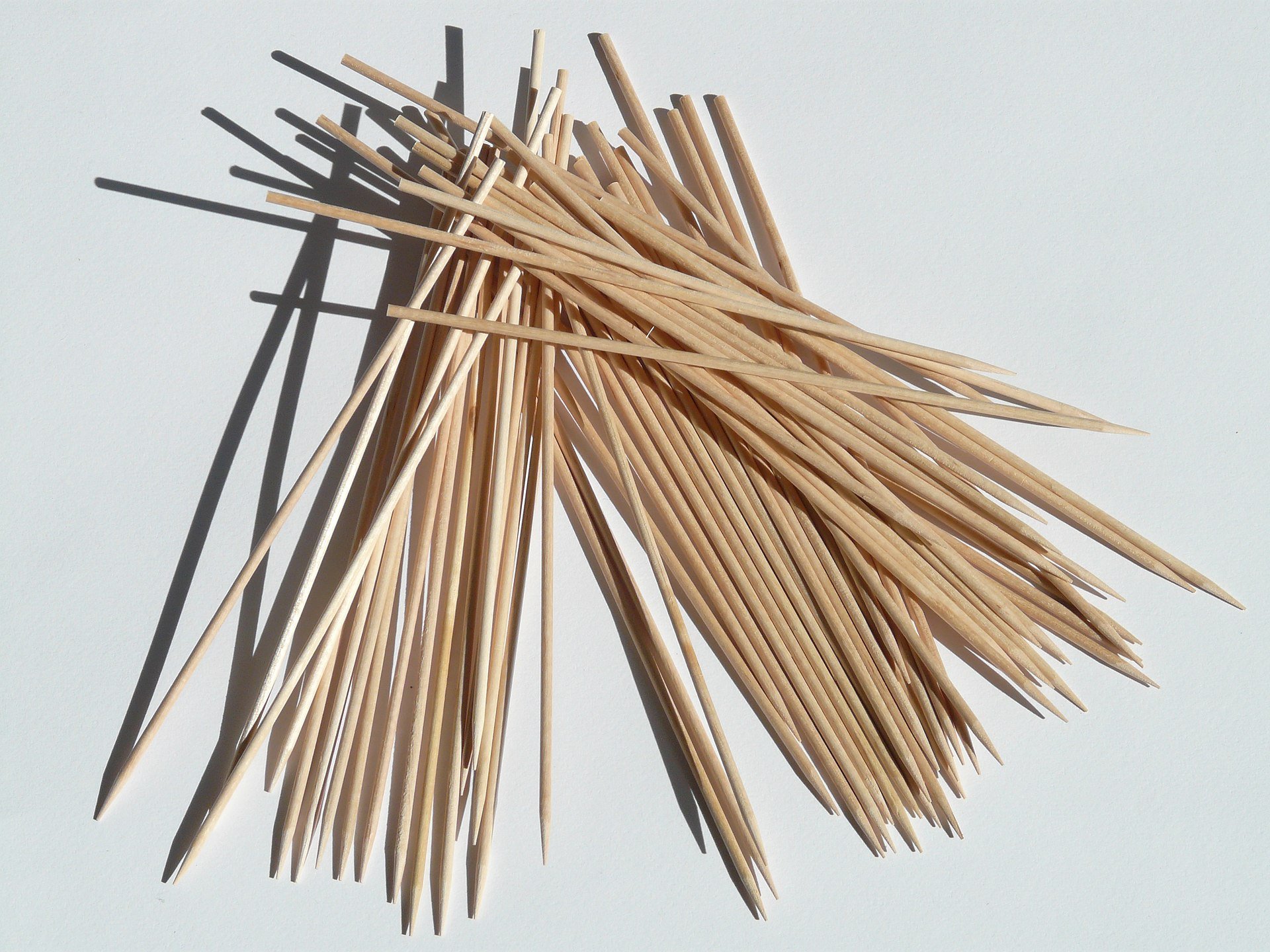Me: I need a trumpet, a xylophone, full drum kit, an electric guitar, a full PA system and a grand piano for my jazz show
Yamaha: I got you
Me: I also need a motorcycle to get there and a set of golf clubs for Sunday
Yamaha: I gotchu there too
Me: I want to play games until I get fat
Konami: yo, there you go
Me: damn, that was a bad idea, I need to go work out in a gym
Konami: I’m way ahead of you
Up up down down left right left right B A
deleted by creator
Bally: What if we offered the same thing, but also with casinos and crappy sports channels?
you can lose weight AND money in the same day, what a deal! /s
Me: I will also need a motor for my boat
Yamaha: anything else?
Me: An ATV for the beach, a Snow Mobile for the winter and a Jet-Ski just because they’re fun.
Yamaha: Of course!
Me: Oh, and you wouldn’t know where I could find a DVD player?
I love how these logos often still reflect the initial small scale business, a Yamaha motorbike still features a trio of tuning forks for music. A Mitsubishi… anything… has the three propellor blades of a Zero fighter plane. I made that second one up but apparently it’s three Oak Leaves or Water Caltrops, a simple and enduring symbol.
Mitsubishi literally means “three diamonds”
I was going to point out the BMW Propeller but apparently it’s a myth from 1929 and now my day is ruined.
Well, at least we are partners in 20th century logo disappointment.
They did make engines for planes though right? bavarian motor works.
Yeah but that’s not the origin of the logo, which is just the stylized coat of arms of Bavaria. Then in 1929, 12 years after creating the logo, they ran an add that showed it over a propeller, and never really did anything to dispel the myth that that is the origin of the logo, since it’s a much better story than “IDK we’re bavarian I suppose”.
Plot twist: Mitsubishi is secretly controlled by the Bavarians
I saw a Samsung excavator the other day
Samsung also makes military vehicles.
And they built the Burj Khalifa!
Samsung excavator = Volvo excavator. Samsung is just relabeling the Volvos.
You forgot digital mixer, SMT assembly systems and gas generators
ITT: people who are surprised large manufacturers manufacture lots of things.
East-Asian megacorps are kind of on a different scale if you’re not used to it though
There’s a reason that popular Cyberpunk looked to Japan for inspiration when it comes to end stage capitalism in a digitally connected world.
The assumption was that these Japanese style megacorps would segregate and dominate the internet, in the way we’ve mostly seen tech-bro startups manage.
Honestly I prefer the cruel indifference of the Cyberpunk musings on megacorp dystopia than what we’ve got.
They also do the vocals! Smh how could you forget Hatsune Miku?
Hold up before you place the order! I need train carriages, a supercomputer, radiotherapy equipment, nuclear power plant, aircon, self propelled artillery and an escalator. Don’t ask me why.
Fine, oh and add that CPU from the Dreamcast
I also need a 3.5" harddrive and a push lawnmower
And it’s the lawnmower that surprised me here!
deleted by creator
Still got room for an electric screwdriver, a hand drill and an orbital sander?
Samsung though: phones, tanks, healthcare equipment
And autonomous killer robots
🇺🇸 : So they can autonomously democratize some of the oil trapped in the Middle East and then bring it back home, too? 🇺🇸
Samsung is South Korean
Also 20% of South Koreas economy
don’t forget the shitty refrigerators
Their TVs were fire the last time I checked
So was the Note 7
They are. That’s all we buy for TVs. Monitors are great too. Have super fancy ones at work. Not that I go to the office much, because that place sucks.
Samsung is scum. They are cheating on tests.
Won’t argue with that. But I do like my Samsung devices. Won’t vouch for their (or any company, really) ethics tho.
I got an LG last time, never again, WebOS is trash and there is no way to flash anything else on it. I’m kinda over smart tvs all around, but if I have to get one it will run that shit.
I really wanted to like things like WebOS and Firefox OS, but here we are. Just never panned out.
My next TV is gonna be a projector. I only ever use it at night for movie/shows occasionally. I don’t really need a TV, my pc is what I’m using most days.
My Samsung fridge has been fantastic over the past 10 years but for one thing. The control panel is borked so I can’t actually change any settings lol. But as it stands, doing a solid job.
yeah they are okay when they work but repairs are more difficult to do than other manufacturers, and parts are hard to come by
removed by mod
They also make some fantastic solid surface counter tops that are pretty nice budget replacements for higher end stone counters.
So random.
Largest cargo manufacturer, apartment builder and they used to make cars.
They have a lot of divisions under their main.
Me: I need a flute for my orchestra performance
Yamaha: No problem, here’s our 800W Series.
Me: You wouldn’t happen to know where I can
get a heavy 600 cc sport bike with the stop speed of 260km would you?
Yamaha: You’re not gonna believe thisYamaha often gets overlooked for instruments, I think a lot of this is that we don’t expect a company that makes jetskis and motorcycles to also know what they’re doing with guitars, saxophones, and pianos, but they actually make good quality stuff.
It’s more accurate to think of Yamaha as a conglomerate that owns several different companies. It’s just that a lot of those smaller companies are also named Yamaha
Fun fact, the Yamaha logo is an image of three tuning forks, laid atop each other.
I’ve got a set of Yamaha HS7 studio monitors sitting in front of me right now. Their music equipment is great.
I have a yamaha saxophone, it is one of their intermediate ranges (I forgot which one since I am living overseas). Sound quality is excellent. I play classical saxophone, and it produces this great warm tone (I have no idea how to describe it) that is excellent for this purpose. I am not sure about jazz though.
My brother in law is a jazz sax player (tenor) and plays a Yamaha. I don’t know the model but he says it’s great and punches well above it’s weight class considering what it cost him.
They get overlooked because they’re fuckin expensive
I don’t think I’ve heard anyone say that before. Almost everything they make is industry standard setting when it comes to price. It’s either so cheap you can’t believe it, or it’s priced right where it should be.
Yamaha Pacificas are a great first guitar in terms of value for money.
In terms of pianos and keyboards, maybe, but those also aren’t overlooked, they’re broadly considered among the best you can get. They own Bosendorfer now too, btw. Drums are just fuckin expensive in general, and most drummers I think you’ll talk to are generally aware of them along with the likes of Pearl and DW.
You might be talking about guitars and basses, which would be fair, most people don’t associate Yamaha with guitars and basses. The thing is, the most expensive non-signature Pacifica currently in production is like $750 and comes with Duncan pickups and a Wilkinson trem. And even the Revstars, which are out of my price range, come in quite a ways under comparable Gibsons.
Yamaha owns a lot of smaller companies. Line 6 has been one of their subsidiaries for a while and they recently acquired Ampeg as well, so you can buy a full rig with a bass, effects pedals, amp head and speaker cabs all from Yamaha.
Thanks for your comment, I specifically meant drums and should’ve clarified. Yamaha sets were always up there in cost compared to all low/mid range sets growing up through the 2000s, though I haven’t compared prices in over 5 years. As far as guitars go, I’m currently learning and started with a Yamaha FG800 I picked up used for $175, though even full price wasn’t bad.
I am a guitar player first and foremost, but their drums always sounded damn good, and their hardware was always super solid. Not my area of expertise, but Yamaha seemed to never made a cheap kit because their base model kit had such good hardware and quality it was punching up to way more expensive Pearl and Ludwig kits.
The only problems I’ve seen is that they don’t have good resale value because they are China made, and most musicians don’t want to be that guy playing anything made in China.
Also good choice on the FG. I’ve played a lot of acoustics and honestly yamaha acoustics are astounding. If I were to pick my top 5 acoustic brands, Yamaha would be solidly at #2. My next acoustic is going to be a Yamaha trans-acoustic. It’s either that for $800, or buy my dream acoustic which costs $5000.
I don’t know which products you’re thinking of but at least for bass guitars (which is my instrument) they’ve got stuff ranging from less than $200 up to just under $2000. My upper-mid tier bass cost just under $900, but sounds and feels better than Fender basses that would cost $1300 or more. Not to mention better designed. Compare that to other top tier production models from Fender, Gibson, Musicman, Rickenbacker etc… They’re all between $2000 and $3000. Musicman might be the only one of those that can claim to be better built consistently.
They often get overlooked because, in my experience (guitars and violins) they tend to sound like hot garbage. Good for entry level but not much else.
Can’t speak for Guitars and Violins, but their drum hardware is top notch amazing stuff
Huh! TIL.
I’m a bass player so I’m only aware of their guitar models, haven’t ever played them myself (and honestly I lack the experience with guitars to tell a good one from a so-so one). But their BB basses are great and have been for a long time. I bought one for less than $900 a couple years back and it sounds and plays great, and is just a really well designed instrument. They’ve implemented a lot of stuff that legacy companies like Fender or Gibson should, but won’t (6 bolt necks with miter attachments at the end, angled slots for through body stringing, string trees that actually retain strings well for a good break angle above the nut, reversible bridge saddles)
Don’t forget your electric guituar amplyfier on the way out
ME: The concert’s on a boat by the way, and we need power really soon. Do you happen to have outboard boat motors?
YAMAHA: Have I got something for you right here.
Gear it right (or wrong I guess) and that 600cc WILL hit 300km/h. They put out the same power the original hyperbikes did.
I also love that all of the greatest Toyota car engines have had Yamaha heads.
I think just mentioning the LFA suffices
This reminds me of around 2000, when I had a Daewoo television, and then my mind was blown one day when I saw a Daewoo car. Who makes televisions and cars? Daewoo apparently.
so apparently samsung also makes cargo ships
Ever hear of Daewoo Heavy Industries? They make excavators, railcars and ships
And Hyundai has their hands in much bigger pots than we realize.
Yep, a pot full of Immobilisers that they didn’t fit to cars being sold in the US 🙃
I’ve had a good chuckle many times about people buying Japanese cars and dismissing Korean manufacturers as rubbish.
Guess who made the Mitsubishi Lancer engines for over 20 years? Hyundai. Which always seemed odd because Mitsubishi is no slouch when it comes to heavy manufacturing.
Suzuki SV650 motorcycle engines, which has a cult following? Also Korean manufacturing.
Mitsubishi
They also make microwaves
Samsung too. Rebadge Renault’s in South Korea.
I used to have a Hyundai laptop … it was really good :-)
Asianometry has an interesting video on the rise and fall of Daewoo that is definitely an interesting example on how not to run a business.
Here is an alternative Piped link(s): https://piped.video/tEgayQwXo1g?si=kv_Ozu1bnbrxkJ1d
Piped is a privacy-respecting open-source alternative frontend to YouTube.
I’m open-source, check me out at GitHub.
Fujitsu too
Mitsubishi has entered the chat.
Yamaha has entered the chat
Hey. Hey buddy. Want a keyboard or guitar? How about a jetski?
Me: Hmm, about time I bought a phone
Siemens: I gotchu
Me: a laptop would be nice to apply for jobs
Siemens: Gotchu there too
Me: Just got a City Planner job, wonder who I can buy some trains from
Siemens: Gotchu again bro
Me: Nuclear power plant to power the trains?
Siemens: We don’t sell those anymore, we’ve gotchu with steam and solar power plants though
Me: Just bought a house, need some kitchen appliances…
Siemens: Gotchu bro
Me: I need a TV and a Smartphone
Samsung: No worries man
Me: I could also use an artillery barrage and a few tanks
Samsung: Well now that you mention it…
-
I’m automating this manual process and need a PLC and a couple variable frequency drives?
-
We’ve got just the thing.
-
Brother (the printer company), makes world-class sewing machines. Home use and heavy commercial.
Samsung, the shitty TV maker that used to be good, makes war tanks.
And apartment buildings.
And is a hospital
Sewing machines and printers aren’t all that different. They both take a media and apply it to a medium using a motor and replaceable supplies. Especially when you consider the sewing machines that you connect to a computer and sew images and patterns to.
They both take a media and apply it to a medium
“Media” is the plural of “medium”. 1 medium, 2 media.
So does Toyota (before cars in fact)
Me: I need to get rid of the whole Uchiha clan
Hitachi:
You can do similar with mitsubishi, yamaha, bugatti, samsung (especially samsung. They make a ton of things. Ships, phones, hospital equipment, clothing and you can even live at their hotel
Is that a hotel for shills?
Also, what does Bugatti make other than cars? (I found they used to make trains)
Of course they may have just bought it from another company. But on an old top gear episode they have a 180K wrist watch from bugatti.
Now that i think of it
Peugeot also fit this theme. Bombs, cars, bikes, and pepper mills.
Those pepper mills kick ass too.
It needs to be three times bigger than this!
The record player I grew up with is a freaking Mitsubishi
Mitsubishi was founded by a samauri.
So I was curious, and I looked it up. You’re close: the founder was a descendent of a line of samurai, but his great grandfather sold the status/title in order to resolve debt obligations
So was my first CD burner.
I should ask my sisters if they remember the manufacturer of the one we had… If I had to take a guess, it was probably Sony
These weird combinations look fun but they’re generally the result of having conglomerates, companies that have gobbled up a bunch of smaller, unrelated companies.
Conglomerates are tricky to pull off because managing a lot of disparate business lines. A CEO who knows all about how to market construction equipment is likely to miss that one of their other products became an iconic sex toy years ago. The big problem is that more focused companies can typically outmaneuver you in their area of focus.
Theoretically, there might be synergies that make your company more effective but normally, conglomeration is drag on the risk-adjusted rate of return on your company. It’s much easier to pull off when your government has strong protectionist policies or if there are officials you can bribe to keep out the competition.
Why would a company do something that’s generally bad for the company? It’s generally good for the CEO. A CEO often has a very concentrated investment portfolio. Changes in the value of the company they’re running can have a huge impact on their personal wealth. Conglomeration allows a single company to be a diversified asset. It does it in a way that’s objectively worse for shareholders but better for the CEO.
Koreas “chaebol” system isn’t just any kind of conglomerattion, though… it was based on the system the Japanese used to dominate Korea during it’s colonization of that country, which the US simply encouraged after the war. The dictatorships that followed basically ran with it… and now you have these gigantic, government-subsidized “chaebols” that is the epitome of “too big too fail.” South Korea is about as oligarchic as it gets.
It’s utterly hilarious to me when “free market” cultists try to use South Korea as an example of how miraculous their fairy tale economic ideology is.
It’s functionally close enough to a conglomerate though.
I’m not exactly sure what ‘“free market” cultist’ is or if you’re accusing me of being one. Modern economists don’t normally align themselves with simplistic ideologies like “free market”, “communist” or “capitalist”. They’re aware of the historical and modern usage of these terms but they tend to focus on areas that are far to specific for those terms to even make sense. You won’t find a lot of economists that argue for complete Laissez-faire capitalism any more than you’ll find real economists arguing in favor of classical Marxism.
There is general agreement that conglomeration benefits management more than shareholders. There’s general agreement that they are more likely to arise under some economic conditions and that those conditions usually aren’t associated with socially optimal economic policies.
Modern economists don’t normally align themselves with simplistic ideologies
Yeah… there’s just a whole bunch of them whose sole purpose seems to be coming up with simplistic fairy tale narratives to brainwash the masses with. After all… what would Reagen have been without Hayek, or Pinochet without the Chicago Boys?
I don’t think your last sentence is congruent with what you were saying before it.
You’re saying a CEO will opt for conglomeration because it either increases the value or decreases the volatility of the company because the CEO has lots of stock in the company. If that’s the case, how is it bad for the shareholders, of which the CEO is a major player?
The shareholders can go and buy a diversified portfolio on their own, by investing in many companies, so they can derisk their portfolio without conglomeration.
If they already own shares of the conglomerating company, its returns will be lower (they don’t care that it’s less risky; they’ve diversified already). Similarly, the returns of the company that is now becoming part of the conglomeration will likely be reduced, which negatively affects shareholders of that company.
The benefit is really only for the people whose prospects are deeply tied to this company, and only this company… its management employees, who are compensated by the company (often in the form of stock that they can’t sell till they leave, or that vests over a long time frame).
It’s a bit complicated.
The CEO and the other shareholders aren’t the same.
For the CEO, it’s a good way to diversify since they can’t diversify the normal way.
For the regular share holders it’s a way to diversify but it’s not as good as being able to buy and sell the individual components.
I’ll skip a lot of the math but the upshot is that their Sharpe Ratio (expected return divided by risk) is higher if they do their own diversification than if they buy one company that tries to diversify within it.
Man, this Smart fridge is amazing. Do you, by any chance, happen to make self propelled atillery tanks as well?
deleted by creator
Don’t forget the Hitachi UltraStar hard drives
deleted by creator




















